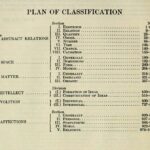![]()
What makes a song a hit? What makes it a classic? Often key music people, such as record producers and artist managers, can fail to recognize a song’s potential when it comes along. That’s why songwriters shouidn’t simply take no for an answer. A great case in point is “The Tennessee Waitz,” a modern Standard that would not be denied.
In the beginning, its writers were just trying to fill a niche in the marketplaee. One night in December 1946, country bandleader Pee Wee King was returning to Nashville foliowing a tour of Texas. He and vocalist/fiddler Redd Stewart were in the front seat of their luggage truck, while the band rode ahead in the stretch limo. Listening to country radio as they; neared Memphis, King and Stewart heard Bill Monroe’s latest release, “Kentucky Waitz.” That got Redd Stewart to thinking.
Shouldn’t someone write a Tennessee waltz?
Why not them? Stewart even had a ready-made melody – in mind, “The No Name Waitz,” the instrumental theme music that the band used to open shows.
While King drove the truck and hummed the melody, Stewart grabbed a matchbox on which he scribbled scraps of lyrics. “Every once in a while he’d say, ‘How does this sound?’ and he’d sing the words to the melody,” King recalled in his autobiography. Very quickly a sad, spare sohg of lost love took shape. Together the two got the words and the melody pretty much how they wanted themto be. Vet, they also got sorne priceless fine-tuning from their publisher, Fred Rosé of Acuff-Rose Publications. An ace song doctor, Rosé spotted a weakness in the bridge, changing the lyrics from the repetitive “O the Tennessee Waitz, O the Tennessee Waitz” to the smoother and more meaningful ‘1 remember the night and the Tennessee Waitz.”
With that deft alteration, Pee Wee King and Redd Stewart feit ready to recórd a hit. But Steve Sholes, their RCA producer, didn’t think much of the song;- in fact, adding insult to injury, he even suggested that they cover Bill Monroe’s “Kentucky Waitz” instead! King balked at that idea. Stijl, Sholes didn’t allow the band to record “The Tennessee Waitz” until nearly a year later, in December 1947. King and Stewart’s instincts were on the money. The song became a solid No. 3 country hit in 1948. Cowboy Copas and Roy Acuff also covered it. But that was only the beginning.
Two years later, in the fall of 1950, black bandleader Erskine Hawkins recorded the country waitz in pop ballad style for Coral Records. Then serendipity stepped in. A Billboard magazine writer named Jerry Wexler (later a top producer/executive for Atlantic Records) reviewed the Erskine Hawkins version and liked it. Billboards offices were in New York’s famed Brill Building, just two floors above the offices of Jack Rael, a former musician who man-aged 23-year-old, up-and-coming pop singer Patti Page. One day, Rael bumped into Wexler at the Brill Building and buttonholed him. Patti had a Christmas single coming out, “Boogie Woogie Santa Claus,” and she needed a B-side. Did Wexler have any ideas? Wexler suggested “The Tennessee Waitz.”
Though they liked it, both Rael and Page were certain that the new song was just a throwaway. Nevertheless, they recorded a classy, low-key pop version of the song. Ornamented with gently strummed guitar, a muted trumpet obbligato and delicate piano tri lis, the record was near-perfect setting for Page’s velvety double-tracked harmony vocals. It was an unusual record. It had the sim-plicity and timelessness of a folk song, which conlrasted with the strikingly intimate, otherworldly harmonies created by the still-new technique of overdubhing. The single struck an immediate chord with listeners, zooming to No. 1 on the pop charts. It went on to sell more than 3 million copies in 1951 and kept selling, soon breaking the 6 million mark. Since then it’s been covered by more than 300 artists, including Emmylou Harris, Sam Cooke, Otis Redding and Elvis Presley.
The song not only launched Patti Page to stardom, it also started Pee Wee King and Redd Stewart on a series of pop songwriting successes that included “Bonaparte’s Retreat,” “Slow Poke” and the sultry “You Belong to Me.” In 1965, “The Tennessee Waitz” was made an official state song of Tennessee.
“It was a song with simple words, with a simple sentiment, set to a simple melody,” King summed up. Easy to dismiss, but some-times that’s exactly what it takes.







